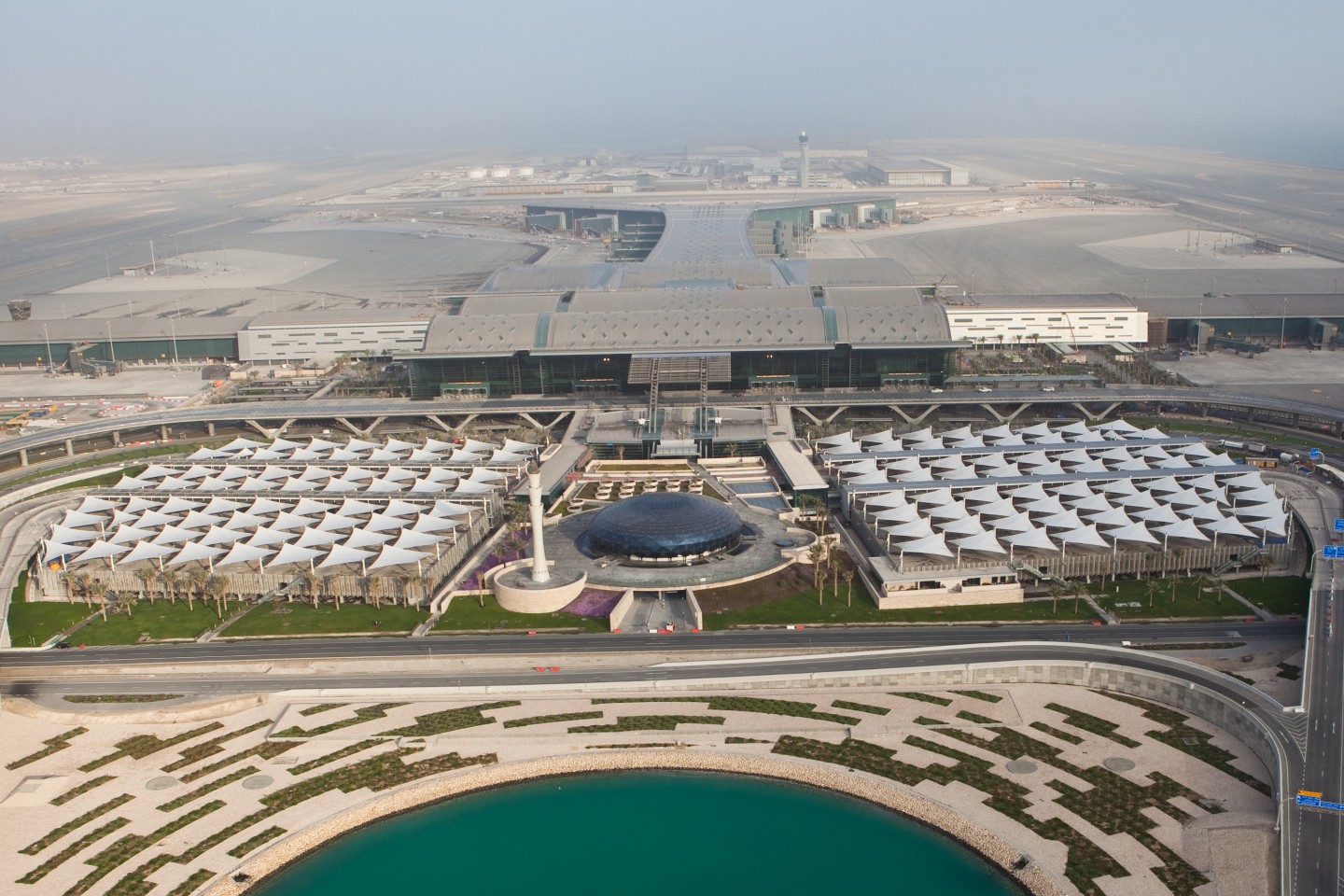23 November 2016
The Fraunhofer Institute for Material Flow and Logistics received the order to plan the new air cargo terminal (CT02) at Hamad International Airport in Doha/Katar. With its planned capacity the CT02 will count among the biggest freight terminals of the world when being completed.
The project will be realised next to the current Midfield cargo terminal (CT01) and includes planning and designing of logistics spaces, offices, landside and airside connecting buildings, streets and other joint infrastructures. The Italian engineering office F&M Ingegneria ordered the planning services. They include the phase of pre-design, i.e. the support of both cargo requirements management and cargo concept development. That involves the structural survey of CT01, deducing the target capacities, determining area required, arranging the logistics spaces and defining the interfaces of CT01 and CT02.
»The constant positive feedback of all project participants and the response from the aviation market encourage us to use this major project to intensify the international orientation of our service portfolio«, explains Dr Ralf-Maximilian Jungkunz, Head of Aviation Logistics at Fraunhofer IML. The digital transformation of the aviation network plays a key role in guaranteeing sustainability for the customers. »We are on the lookout for challenges to create something entirely new together with our aviation customers«, emphasises Jungkunz. All participants of Aviation Network are subject to competitive constraints and react with increases in productivity and flexibility. Decisions on investment in digital transformation are however difficult, in particular with respect to costs, data security and motivation of employees.
»According to our point of view the digital transformation of the entire aviation supply chain aims at mastering complex tasks autonomously«, says Jungkunz. In order to do so, the principles and technologies of Industry 4.0 are applied to aviation logistics and connected to the available infrastructure in an intelligent way. Accordingly, it is mandatory for aviation logistics 4.0 to implement autonomous logistics resources, that organise themselves according to the situation (for example materials handling), and their planning and control systems (for example booking systems).
Technological basis for aviation logistics 4.0 are cyber physical systems and Internet of Things. Of importance for aviation logistics are mainly auto ID technologies and wearables in combination with jointly used business objects, the metadata of which are digitally available (raw data) and can be easily processed.
Contact partner:
Dr. Ralf-Maximilian Jungkunz
Head of Aviation Logistics
Fraunhofer Institute for Material Flow and Logistics
Bessie-Coleman-Straße 7
60549 Frankfurt am Main
Telefon +49 69 668 118 356
Mail: ralf-maximilian.jungkunz@iml.fraunhofer.de
 Fraunhofer Institute for Material Flow and Logistics IML
Fraunhofer Institute for Material Flow and Logistics IML